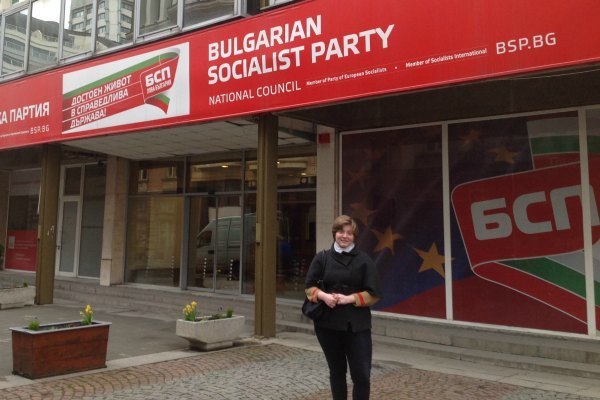
Why do political parties in new democracies build organizations when they arguably do not really need to? Ana Petrova, a graduate student in the Political Science department, received a Graduate Break Travel and Research Grant to travel to Bulgaria and shed some light on this question. Ana recently wrote to us about her experience:
In an age of state subsidies and easy media coverage, political parties in new democracies do not really need to build organizations. Yet, a number of them do. Why do political parties continue to invest in such an expensive and time-consuming endeavor, when they can easily rely on state subsidies to survive and on the media to reach the electorate? Does the presence of such resources suggest that a rethinking of traditional conceptualizations of organizational strength is necessary?
I spent my spring break in Bulgaria seeking an answer to these questions by interviewing party elites. I talked with party leaders, deputies, mayors, and organizational administrators from the three most well established parties and a very recently formed political force in the country. All four parties have different levels of organizational strength and have been following different paths since their creation.
Contrary to the expectations advanced by recent scholarship on the topic, all of the politicians I interviewed underscored the importance that their parties place on organization building. Bulgarian parties continue to consider organizations as essential to their functioning and do not hesitate to invest significant resources in building them, even when the results from such efforts take time to manifest. Organizations serve a number of purposes and their influence is not limited to bolstering parties’ electoral performance.
This is an important and promising finding for two reasons. Robust organizations constitute an asset crucial for successful party consolidation. This is no small feat in an electoral environment marked by significant volatility and remarkable rates of party demise. Organizations thus indirectly help stabilize policy making and achieve desirable development outcomes. They also improve political representation and accountability.
The Nanovic Institute Graduate Break Travel and Research Grant allowed me to conduct preliminary field research crucial for the development of the main concept and the theory of my dissertation. It made it possible for me to collect important insights which I plan to test using a cross-national sample of Eastern European and Latin American parties. It also helped me gain invaluable experience in one of the methods I will use in my dissertation. I had a very productive break which increased my passion for a project I have been working on for months and greatly contributed to my preparation for my field work next semester.